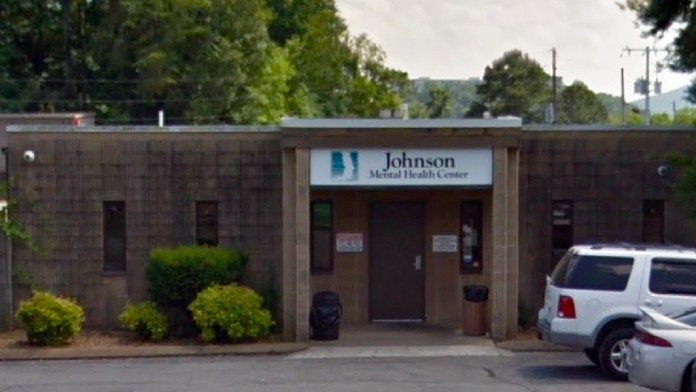Johnson Mental Health Chattanooga

About Johnson Mental Health Chattanooga
Johnson Mental Health Chattanooga is one of over twenty integrated outpatient behavioral health clinics run by Volunteer Behavioral Health. They’re a community behavioral healthcare provider with over 60 years of experience delivering accessible substance use recovery and mental health support for over two million Tennesseans across 51 counties in the Middle, Southeast and Upper Cumberland regions. Their ‘No Wrong Door’ approach alongside ‘Same Day Access’ ensures patients are quickly connected to the right care.
Chattanooga campus offers an outpatient environment where you can receive focused care to address substance use issues and co-occurring disorders. They’re situated along Bell Avenue near Highway 27 in the North Shore neighborhood. This location is five miles northeast of the popular Lookout Mountain, 1.5 miles north of Tennessee Aquarium and a short walk south of Coolidge Park. Downtown is just 1 mile south. CARTA Bus Route 4 stops a few blocks from the facility.
24/7 Crisis Support & Stabilization
The Chattanooga campus includes crisis stabilization units for patients with acute mental health or substance use disorder crises. Crisis support focuses on stabilizing patients, minimizing immediate risks and linking them to appropriate ongoing care. Crisis Services include medical detox beds for short term medically supervised withdrawal. Teams provide crisis counseling by phone, in person, and via mobile units.
Complete Recovery Support Including Addiction Medicine
General and intensive outpatient (IOP) care meets the diverse needs of people in recovery. Both are flexible programs so you receive care without disrupting your job and other commitments. Services involve recovery-focused therapy groups that equip you with practical sober skills that foster resilience and prevent relapse. We particularly like that the facility offers telehealth, which means you can receive therapy using secured video conferencing.
People with opioid use disorders are supported through medication-assisted treatment. This technique involves using meds approved by the FDA to manage painful withdrawal symptoms. This can be particularly helpful if you struggle with co-occurring disorders. The facility offers pretrial diversion plus specialized support for families of veterans. They also provide supportive housing and homeless assistance via a specialized program called PATH. This can form part of their recovery support services as you move on.
| Levels of Care | Detox Service Setting | Programs | Payment Options | ||
|---|---|---|---|---|---|
|
In outpatient therapy, you’ll attend therapy sessions several times each week while living at home. This is ideal if you have a strong support system and a lower risk of relapse. Outpatient treatment offers flexibility to maintain work, school or family obligations. |
Dual diagnosis programs address substance use disorders and co-occurring mental health conditions simultaneously. This integrated approach to care improves the likelihood of long term recovery and stability by addressing the root causes of addiction. |
||||
|
Outpatient detox gives you access to medically supervised withdrawal services while still allowing you to live at home. You’ll attend a clinic for treatment and monitoring. This flexible option is suitable for those with mild to moderate withdrawal symptoms who have strong support systems. |
|||||
|
Alcohol detox programs offer medical support to help individuals withdraw safely from alcohol. Your care team may use medications to ease your symptoms and provide medical monitoring to address complications. |
Cognitive behavioral therapy focuses on changing harmful thought patterns and behaviors associated with addiction. You’ll learn healthier coping mechanisms by identifying and replacing negative thoughts. This improves your emotional resilience and decreases your relapse potential. |
Men's programs address substance use while also considering the social pressures, family roles and mental health concerns that are specific to men. You’ll learn healthy coping mechanisms as you build emotional resilience and develop communication skills. |
Opioid detox uses medications to ease severe withdrawal symptoms. It also includes medical supervision to help you manage potential complications. These services allow you to stabilize and begin a recovery plan. |
Women's programs offer a safe and supportive space to focus on gender specific issues such as trauma, family roles and mental health conditions. Therapists tailor the sessions to address women's needs and foster empowerment in a healing and nurturing environment. |
Young adult programs are designed for individuals who are transitioning into adulthood. Topics of discussion typically include identity, independence and peer relationships. Providers may also offer life skills training and career support. |
|
Medicaid
|
Medicare
|
Military Insurance
|
Private Insurance
|
Self Pay
|
Levels of Care
In outpatient therapy, you’ll attend therapy sessions several times each week while living at home. This is ideal if you have a strong support system and a lower risk of relapse. Outpatient treatment offers flexibility to maintain work, school or family obligations.
Dual diagnosis programs address substance use disorders and co-occurring mental health conditions simultaneously. This integrated approach to care improves the likelihood of long term recovery and stability by addressing the root causes of addiction.
Detox Service Setting
Outpatient detox gives you access to medically supervised withdrawal services while still allowing you to live at home. You’ll attend a clinic for treatment and monitoring. This flexible option is suitable for those with mild to moderate withdrawal symptoms who have strong support systems.
Programs
Alcohol detox programs offer medical support to help individuals withdraw safely from alcohol. Your care team may use medications to ease your symptoms and provide medical monitoring to address complications.
Cognitive behavioral therapy focuses on changing harmful thought patterns and behaviors associated with addiction. You’ll learn healthier coping mechanisms by identifying and replacing negative thoughts. This improves your emotional resilience and decreases your relapse potential.
Men's programs address substance use while also considering the social pressures, family roles and mental health concerns that are specific to men. You’ll learn healthy coping mechanisms as you build emotional resilience and develop communication skills.
Opioid detox uses medications to ease severe withdrawal symptoms. It also includes medical supervision to help you manage potential complications. These services allow you to stabilize and begin a recovery plan.
Women's programs offer a safe and supportive space to focus on gender specific issues such as trauma, family roles and mental health conditions. Therapists tailor the sessions to address women's needs and foster empowerment in a healing and nurturing environment.
Young adult programs are designed for individuals who are transitioning into adulthood. Topics of discussion typically include identity, independence and peer relationships. Providers may also offer life skills training and career support.
Accreditations
Contact

Chika Uchendu is a multi-niche and seasoned SEO writer with expertise in personal finance, technology and health. He’s had over 10 years of experience creating impactful content that resonates with diverse audiences. His journalism and digital marketing background enables him to combine data-driven analysis with engaging storytelling. This helps drive engagement and grants target audiences access to valuable information.
Chika has worked for Benzinga, Motley Fool, Webopedia and many other popular online media outlets on a freelance and contractual basis. He is using his voice to drive awareness and meaningful change among people dealing with the pandemic of substance use disorder. Chika is an ambivert who enjoys sports, hiking, reading and video gaming.

Peter W.Y. Lee is a historian with a focus in American Cold War culture. He has examined how popular culture has served as a coping mechanism for the challenges and changes impacting American society throughout the twentieth century.




